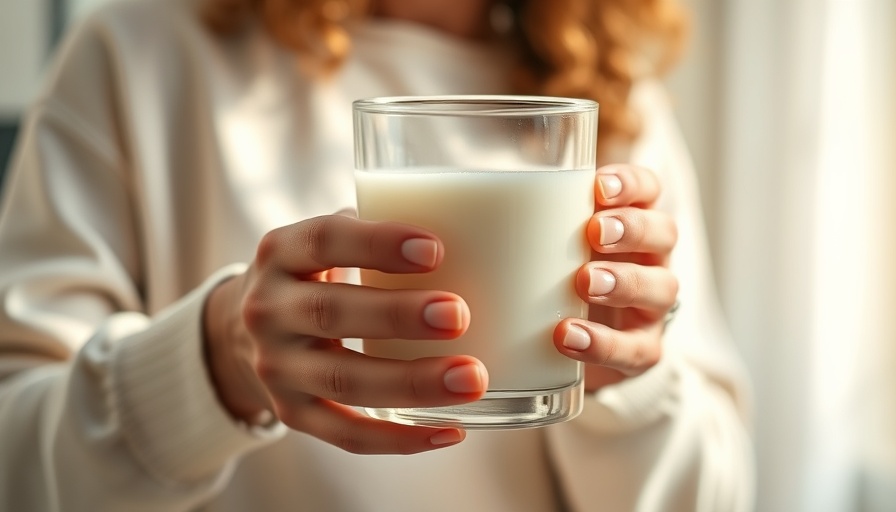
Exploring the Hydration Power of Milk vs. Water
When it comes to hydration, most of us naturally reach for water. However, new studies are revealing that milk might just give water a run for its money. This debate has sparked curiosity, prompting research and conversations among health enthusiasts and nutritionists alike. Recent findings from a study in the American Journal of Clinical Nutrition highlight that milk's unique composition could make it a surprisingly effective hydrator compared to traditional water. But what exactly makes milk special?
The Science Behind Hydration
To understand why milk may be more hydrating than water, we must first delve into its composition. Milk is comprised of approximately 87% water, but it also contains electrolytes, carbohydrates, and protein, which can aid in promoting hydration. Studies from the University of Glasgow have shown that the additional nutrients in milk can enhance the body’s hydration levels more effectively than water alone.
Historical Context: Milk as a Traditional Hydration Source
Milk has been a staple beverage in many cultures for centuries, often consumed for its nutritional benefits. Before the rise of bottled water, milk was a common choice for hydration among different civilizations, from ancient Egyptians to Europeans. Understanding this historical usage can provide insight into its enduring qualities that promote hydration.
Social Connection: Why This Matters for You
As discussions around hydration heat up, knowing your optimal hydration sources becomes crucial. With growing interest in health and wellness, understanding how different beverages contribute to hydration is relevant for individuals, particularly athletes and health-conscious consumers. If milk can effectively quench thirst and provide additional nutrients, it might be a game-changer for those looking to diversify their hydration sources.
Future Predictions: The Rise of Milk in Hydration Conversations
The conversation around hydration is likely to evolve, with milk gaining more recognition as a viable option alongside water. Expect an increase in milk-based drinks and products marketed for hydration, given the rise in health trends focused on natural sources. Brands may innovate to introduce flavored milks that also target workouts and hydration.
Counterarguments: The Water vs. Milk Debate
While the benefits of milk are compelling, some health professionals urge caution. Water remains essential for hydration, particularly in hot climates and during intense exercise due to its calorie-free and carbohydrate-free nature. Furthermore, lactose intolerance poses limitations for many individuals, making water a more universally accessible choice. Balancing these perspectives is key to forming an educated opinion on hydration methods.
Practical Tips for Incorporating Milk in Your Diet
If you’re considering adding milk to your hydration routine, here are some practical suggestions:
- Try low-fat or skim milk for a lighter option that still retains hydration benefits.
- Incorporate milk into smoothies for a delicious way to enhance hydration post-workout.
- Experiment with different plant-based milks, which may offer similar benefits while catering to specific dietary needs.
Conclusion: Make an Informed Choice!
The hydration debate between milk and water is more than just a simple preference; it’s an opportunity to consider how our beverage choices impact our health. Understanding the benefits of both can empower you to make informed choices that support your lifestyle. Ready to explore the dairy aisle a bit more on your next grocery trip? Try introducing milk into your hydration regimen wisely and see how your body responds!
 Add Row
Add Row  Add
Add 




Write A Comment